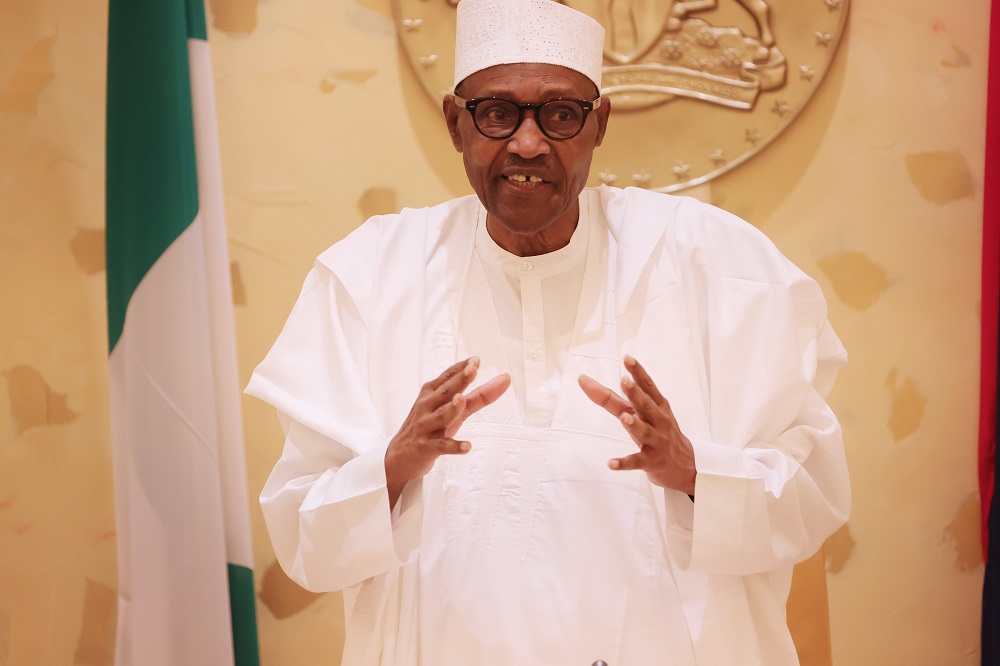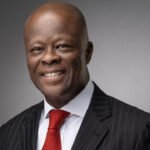If Nigerians thought they had seen the last of the government’s borrowing spree, they are wrong. As they read this, President Muhammadu Buhari has asked the Senate to approve $4.054bn, €710m and $125m fresh external loans to fund projects captured under the 2018-2021 borrowing plan.
Since the President came into office in 2015, Nigeria’s foreign debt stock has risen by over 300 per cent, according to official records.
- Terrorism financing: Suspects oppose FG’s move for further remand
- Emir of Bugundu abducted on Abuja-Kaduna highway
The new request was contained in a letter he addressed to Senate President Ahmad Lawan, which was read at plenary yesterday.
Buhari said the projects listed in the borrowing plan were to be financed through sovereign loans from the World Bank, French Development Agency (AFD), China-Exim Bank, International Fund for Agricultural Development (IFAD), Credit Suisse Group and Standard Chartered/China Export and Credit (SINOSURE).
He said the loans would be used to fund federal and state governments’ projects that cut across key sectors such as infrastructure, health, agriculture and food security, energy, education and human capital development, and COVID-19 response efforts.
The projects, he said, are spread across the six geo-political zones of the country.
The letter reads: “The Senate President may wish to recall that I earlier transmitted a request on the proposed 2018-2020 Federal Government External Borrowing Plan for the concurrent approval of the Senate in May 2021.
“However, in view of other emerging needs and to ensure that all critical projects approved by FEC as of June 2021 are incorporated, I hereby forward an addendum to the proposed Borrowing Plan.
“The Projects listed in the addendum to the 2018-2021 Federal Government External Borrowing Plan are to be financed through sovereign loans from the World Bank, French Development Agency (AFD), China-Exim Bank, International Fund for Agricultural Development (IFAD), Credit Suisse Group and Standard Chartered/China Export and Credit (SINOSURE) in the total sum of USD4,054,476,863.00; Euro 710,000,000.00 and Grant Component of USD125,000,000.00.
“The Senate is kindly invited to note that the projects and programmes in the Borrowing Plan were selected based on positive, technical and economic evaluations and the contribution they would make to the socio-economic development of the country including employment generation and poverty reduction as well as protection of the most vulnerable and very poor segments of Nigerian society.
“The Senate may also wish to note that all the listed projects in the addendum form part of 2018-2021 External Borrowing Plan and cover both the federal and state governments’ projects and are geared towards the realization of the Nigeria Economic Sustainability Plan that cuts across key sectors.”
What Buhari Borrowed In 6 Years
The Budget Office’s medium-term expenditure framework and fiscal strategy paper from 2015 showed that the Buhari administration incurred N7.63 trillion in domestic debt from June 2015 to December 2020.
On external borrowings, the administration increased the nation’s debt from $7.3 billion in 2015 to $28.57 billion as of December 2020. This means that the president has added 303.9 per cent or $21.27 billion of foreign loans to the country’s debt portfolio.
Overall, the Buhari government has had an accumulated debt of N17.06 trillion as of March 2021, using the N381 exchange rate. This represents a 173.2 per cent increase from when he was elected president in 2015.
‘Nation’s debts at unsustainable threshold’
Professor of Economics and Public Policy at the University of Uyo, Akwa Ibom State, Akpan Hogan Ekpo opined that If the loan is for infrastructure, then the argument will be that the loans will payout themselves,
Ekpo, who is also the Chairman of the Foundation for Economic Research and Training in Lagos said: “The problem is that the federal government is always advancing the argument that a loan to GDP is still low. But the truth is that GDP does not pay back the loans,” says
He further notes that the country’s revenue profile is very low while the debt service is very high, yet the government keeps coming up with new borrowing plans every three months.
“Our revenue still largely depends on oil and the price of this commodity is not determined by the country in addition to the production quota by the Organisation of Petroleum Exporting Countries (OPEC) which impacts on the quantity we can produce,” Ekpo added.
He said the government needs to explore domestic resource mobilisation. That can only happen with job creation when you can then tax people.
“The truth is that there is a large infrastructure deficit. We can begin to look at private-public partnership but these private capitals are looking at short term returns.” He added.
Similarly, Bar. Eze Onyekpere, the Lead Director, The Centre for Social Justice (CSJ) and a budget tracker said: “we can do what is called securitisation of assets especially of government-owned enterprises. Through it we can raise money to deliver capital projects. It’s been done before”.
He cited ARAMCO Company in Saudi Arabia as an example. “And of course, we can cut frivolous expenditure and whatever savings we make from there, invest in infrastructure,” Onyekpere said.
An economist, Dr Muda Yusuf, also expressed concerns about the nation’s rising debt stock, lamenting that at the current levels, they have reached an unsustainable threshold.
He stated that if over 80 per cent of revenue is used to service debt, then it was about time to slow down on debt accumulation.
“From reports, this request is new as it was not covered in the original borrowing. It is an addendum to the original plan, which had already been approved. Of course, there is merit in borrowing for infrastructure development but even at that, the capacity to service the debt sustainably should be a critical consideration,” he said.
Ndubisi Ifeanyi Nwokoma, a professor of economics and the Director, Centre for Economic Policy Analysis and Research, at the University of Lagos, decried the proclivity of the present administration to continue to borrow, describing the situation as “worrying”.
“I think people will feel the same way I feel. It is worrying; it is a course for worry. It looks like as a country we have not been able to determine the impact the increasing level of borrowing is having today and tomorrow,” he told Daily Trust in an interview.
Also speaking, Dr. Austin Nweze a Faculty Member at the Lagos Business School, LBS, and Head, Centre for Applied Economics, Pan African University said all the gains recorded by the previous administrations in the 80s, 90s and 2000s towards writing off the external loans have been lost under the present one.
He said the loan request would not scale through if the country had a vibrant National Assembly.
PDP wants request rejected
The People Democratic Party (PDP), in a reaction through its National Publicity Secretary, Kola Ologbondiyan, called on the National Assembly to save the nation by rising above partisan sentiments to reject this latest request by President Buhari for a fresh foreign loan.
The party also urged the National Assembly to immediately commence an open investigative hearing on all the loans collected by President Buhari especially with allegations that they were being diverted to the personal pockets of APC leaders, the cabal in the Presidency as well as APC government functionaries and their cronies.
According to the PDP, “with the N33.107 trillion debt already accumulated by President Buhari and the APC with nothing to show but decayed infrastructure and a depressed economy, an addition N5.62 trillion borrowing proposed by Buhari for the 2022 budget and now a fresh N2.66 trillion external loan, the APC will be hanging over N40 trillion debt on the nation, with no clear-cut repayment plan.
By Abdullateef Salau, Sunday M. Ogwu, Chris Agabi, Muideen Olaniyi (Abuja); Christiana T. Alabi & Abdullateef Aliyu (Lagos)

 Join Daily Trust WhatsApp Community For Quick Access To News and Happenings Around You.
Join Daily Trust WhatsApp Community For Quick Access To News and Happenings Around You.


